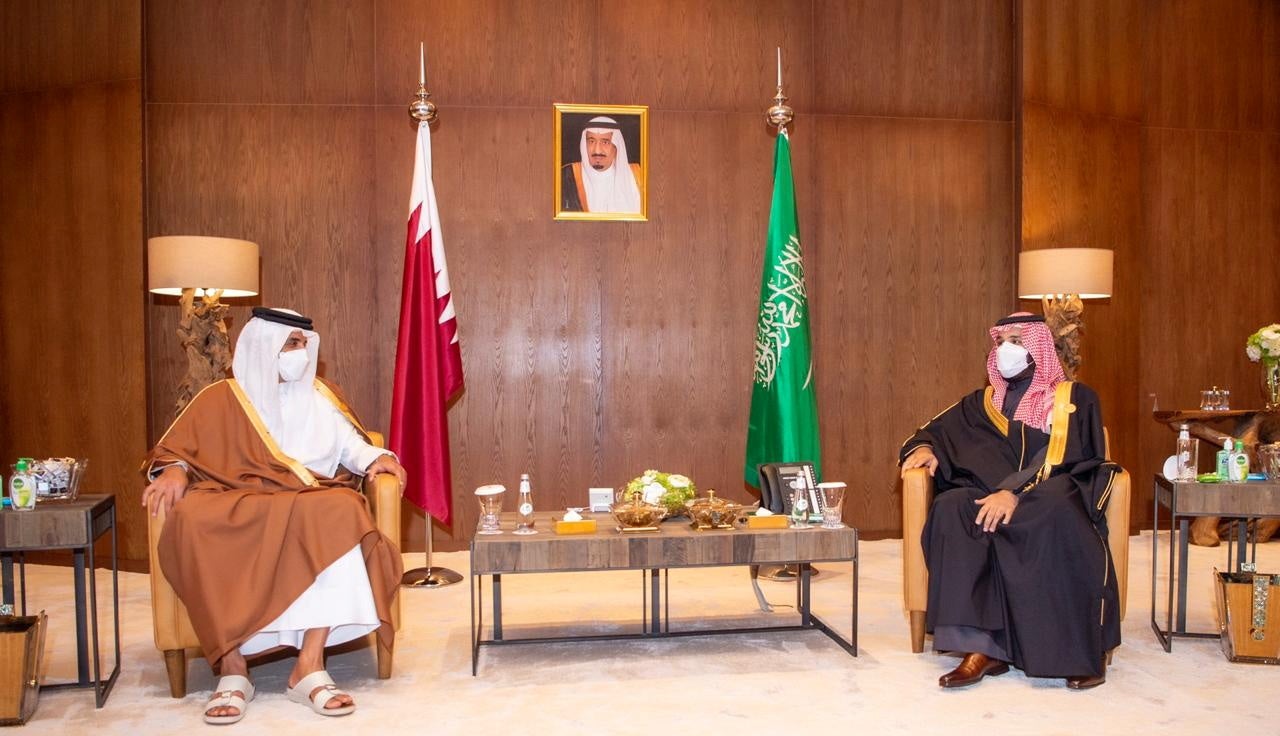An end to the Saudi blockade of Qatar allows the Gulf region to focus on threat of Iran
With US President-elect Joe Biden keen to re-instate a nuclear deal with Iran, Saudi Arabia and Qatar have settled a years-long stand-off in order to be at the negotiating table


Your support helps us to tell the story
From reproductive rights to climate change to Big Tech, The Independent is on the ground when the story is developing. Whether it's investigating the financials of Elon Musk's pro-Trump PAC or producing our latest documentary, 'The A Word', which shines a light on the American women fighting for reproductive rights, we know how important it is to parse out the facts from the messaging.
At such a critical moment in US history, we need reporters on the ground. Your donation allows us to keep sending journalists to speak to both sides of the story.
The Independent is trusted by Americans across the entire political spectrum. And unlike many other quality news outlets, we choose not to lock Americans out of our reporting and analysis with paywalls. We believe quality journalism should be available to everyone, paid for by those who can afford it.
Your support makes all the difference.More than three years after Saudi Arabia, the United Arab Emirates, Bahrain and Egypt severed ties with Qatar, the emir of Qatar this week attended a meeting of the Gulf Cooperation Council (GCC) in Saudi Arabia. The blockade was lifted and sanctions ended, a decision fully embraced by the Saudi crown prince. It is one of the most important events of the new year for the whole region.
Whether or not Saudi Arabia and its regional partners were succesful in the goals they sought by sanctioning Qatar is no longer important. The principle and major issue is the re-establishing of relations and the prospect of reunification among the GCC member states.
The GCC was established 40 years ago to create a shield against the threat posed to the region by Iran. And it is the council that has brought the region together again.
Despite the competition and hostility between Qatar and other Gulf countries, recognising Iran as a serious and considerable threat, as well as the forthcoming changes in US foreign policy ushered in by Joe Biden’s presidency, has persuaded the leaders to lay aside old differences and challenges.
The urgent need for unity in the GCC lies in the same points made by the crown prince at the opening of the meeting: Iran's nuclear programme, missile programme, and its support for terrorist groups.
Recently, the region’s countries have changed their approach towards Iran, following unsuccessful attempts to establish friendly relations and mutual cooperation with the country. The threat from Iran and the rift in the GCC made the region even more vulnerable.
The focal point of restoring relations with Qatar is the changes that will occur with President Trump's departure from the White House and the start of Biden's presidency. For years, the region's countries have lost hope in Iran and consider it a threat to their political and economic interests and security. It now seems clear that the second nuclear deal is on the incoming US president's agenda and if the region's countries want to be a part of the negotiations with Iran about its nuclear and missile programmes as well as regional interventions, they must first resolve their own internal disputes.
Prince Mohammed bin Salman, the crown prince, called Iran's nuclear program a threat to the region and the world. The explicit reference to Iran's nuclear programme at the meeting shows the determination of the region's countries to end their internal conflicts before Biden comes to power.
This agreement's direct impact will soon be visible everywhere from Yemen to Libya, and Syria to Lebanon, Sudan, and Iraq. It will ease tensions in areas where Qatar was in conflict and competition with Saudi Arabia. Areas of contention include the former’s support of opposition groups and equipping of militias alongside Iran and Turkey.
Conflicts between Saudi Arabia, the United Arab Emirates, Bahrain, and Egypt, on the one side, and Qatar, on the other, have damaged the Arab world and the decision to resolve the dispute will mark the end of a battle that always benefitted Iran above all other countries.
The Al-Ula Conference was more than a dispute resolution meeting with Qatar – it will be the key to resolving the problems of the region.
Camelia Entekhabifard is the editor in chief of The Independent Persian




Join our commenting forum
Join thought-provoking conversations, follow other Independent readers and see their replies
Comments